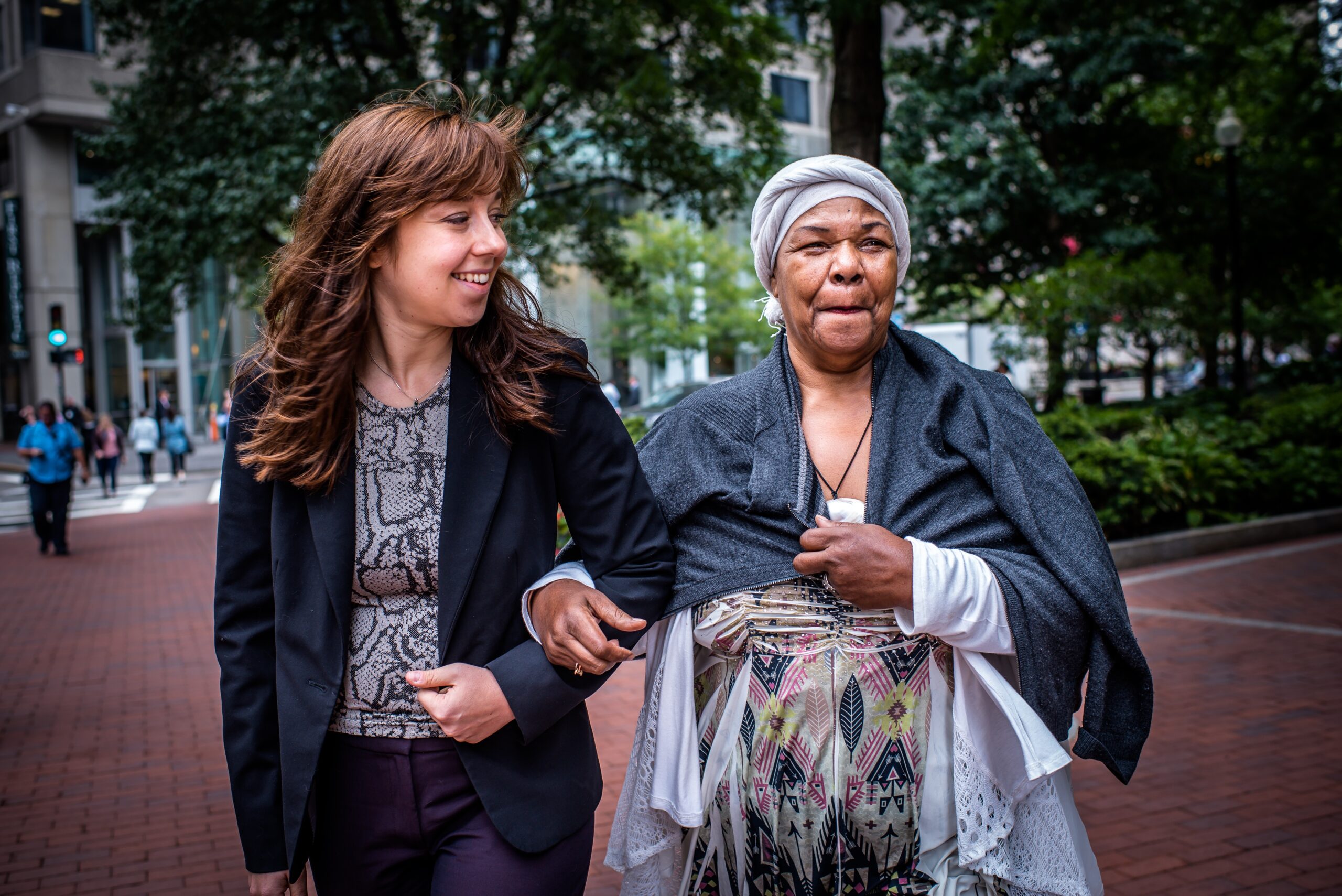Vice President Harris’ Historic And Game-Changing Home Health Care Plan
Last week, Vice President Kamala Harris proposed a historic new “Medicare at Home” benefit to help families with caregiving needs. Under her plan, Medicare will cover home care for the first time ever for all of our nation’s older adults and those with disabilities on Medicare. Her proposal would allow them to live the independent lives they desire.
While many in the media immediately talked about the politics of this proposal and how it could help or hurt the Vice President’s run for the presidency, our thoughts immediately turned to Sharon Hall.
Sharon is a family caregiver living in Cumming, Georgia. Sharon struggled under the increasing cost and toll of becoming a caregiver to an elderly parent. Ultimately, she had to give up her job and much more to care for her loved ones.
And we know Sharon is not alone.
Nearly a quarter of adults are part of the sandwich generation providing intergenerational care to both their children and a parent or a loved one with disabilities. And currently Medicare does not cover longer periods of home care, typically only paying for a home aide only when a patient is recovering from an acute medical condition and only for a short time. This leaves older adults who need care stuck between relying on a family member to provide often uncompensated care or impoverishing themselves – selling assets and spending retirement savings – to attain Medicaid eligibility and get the support they need through that program. Communities of color and other underserved communities are also disproportionately impacted as they often face additional barriers that exacerbate the challenges of accessing Medicaid.
Which is why the Vice President’s new plan is so historic and potentially game-changing.
As The 19th wrote, this new proposal could transform long-term care for the “forgotten middle” – middle-income older adults who don’t qualify for Medicaid but also don’t have sufficient financial resources to pay for long-term care and other health services out-of-pocket. And as The Grio noted, it could be particularly impactful in Black and Hispanic communities who face systemic barriers to person-centered care and economic advancement.
We know that, for millions of people, affordable home care for themselves or their loved ones is currently out of reach. And with our population aging, we know this problem will only grow in the years ahead.
The Vice President’s proposal would change that. And in doing so, help millions of people living in this country.

The needs of caregivers and the people they support has been a focus of our Health System Innovation work for over a decade. Our Center for Community Engagement In Health Innovation has a deep history of engaging with people who are dually eligible for both Medicare and Medicaid, and centering their perspectives and highlighting gaps in their care with health care administrators, plan officials and government agencies.
Most recently, we have been working on the RAISE National Strategy to Support Family Caregivers on behalf of the Administration for Community Living to uplift and center the perspective of family caregivers. It is clear that the alignment between our goals and Vice President Harris’ “Medicare at Home” plan presents a huge opportunity to create infrastructure and provide additional resources for caregivers, older adults, and those living with disabilities. However, as the American Rescue Plan Act investments in home and community-based services have shown, achieving equitable implementation so that these investments benefit those who need it most is easier said than done, and further investments are needed if we want to make these goals a reality.
For our health care system to effectively address gaps in care and step up to support those who need it most, investment is needed both in carrying out the RAISE strategy via state and federal policymaking and in the many community-based organizations and caregiving coalitions already doing this work and making a difference in their communities. Building the power of family caregivers in the movement for health justice has highlighted the importance of 1) centering the voices of those most impacted and 2) incorporating culturally appropriate and trauma-informed care and outreach into implementation strategies. Incorporating recommendations from the National Strategy, leveraging lessons learned, and building upon existing community engagement infrastructure will ensure that these changes are making a difference for those who need it most.
From our years of experience working with a diverse network of local and state advocates across the country to foster connections, improve systems, and bring community-led and person-centered health innovation concepts to life, we have built up an established network of trusted partners and community voices to see this work through. Our work with family caregivers has highlighted that we cannot effectively support older adults aging in place without also addressing the needs of the people who care for them.
It is through that lens that we view the Vice President’s plan and applaud it for addressing a growing problem in this country in a bold and strategic way.
Our decade-plus work on this has made it clear that serious systematic change is needed. And this proposal is an important step in that direction.
Please join us as we work to make this a reality, and share your story: